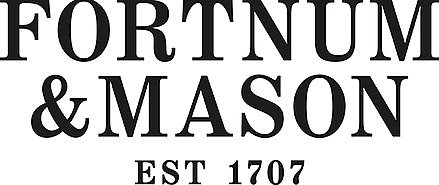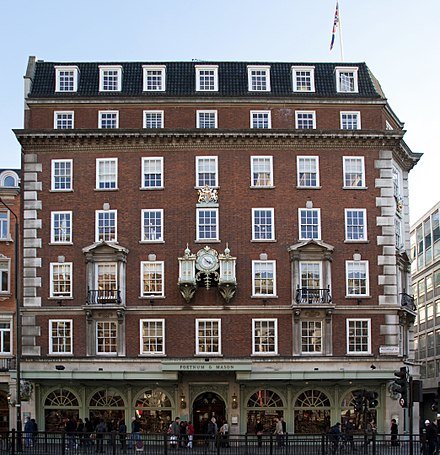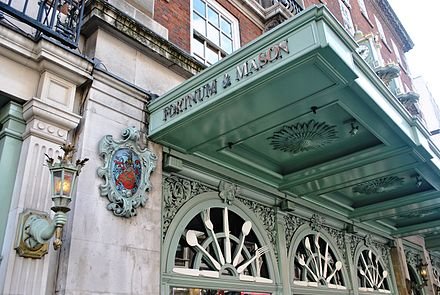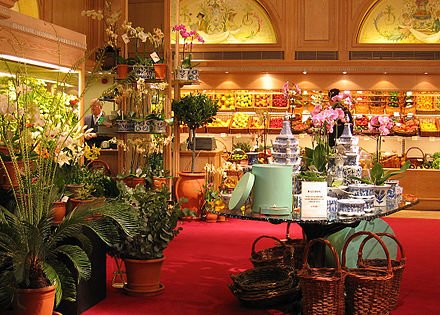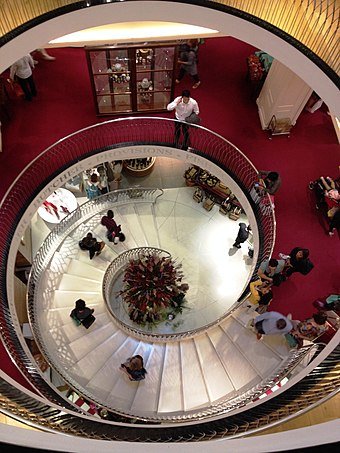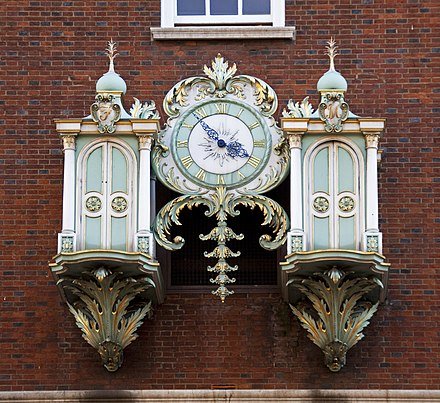British Heritage
Remember, Cherish, Learn.
beta
Fortnum & Mason - Emporium of Empire
An Unwavering Symbol of British Heritage.
Few establishments have the prestige and longevity to encapsulate the evolution of British heritage quite like Fortnum & Mason. Its history has been woven into the fabric of the nation’s identity, from its roots in the 18th century to its continued relevance today.
The story of Fortnum & Mason begins in 1707, when William Fortnum, a footman in Queen Anne's household, teamed up with his landlord, Hugh Mason, to establish a small grocery store in St James's Market. Fortnum's clever practice of reselling half-used royal household wax candles not only formed the company's earliest beginnings but also established a precedent of resourcefulness and opportunity.
As a Royal footman, William Fortnum had a unique understanding of the tastes and requirements of the Royal Court, which undoubtedly contributed to Fortnum & Mason’s early success. This connection with the monarchy was reinforced in 1761 when William Fortnum's grandson Charles entered the service of Queen Charlotte, resulting in a further increase in business.
The establishment's reputation for quality and luxury was thus rooted in its affiliation with the royal household, which continues to this day. Fortnum & Mason is a holder of two Royal Warrants, granted by Her Majesty The Queen and His Royal Highness The Prince of Wales, as testimony to its ongoing service to the British monarchy.
Fortnum & Mason's impact extends far beyond its London storefront. The company has long been associated with a variety of culinary innovations. The most famous of these is arguably the invention of the Scotch egg in 1738, an enduring food item that remains popular worldwide. Additionally, during the Napoleonic Wars and the Victorian era, Fortnum & Mason supplied a wide range of provisions including dried fruit, spices, and preserves to British officers and court functions. The store's commitment to delivering quality and luxury was further exemplified when Queen Victoria sent Fortnum & Mason's beef tea to Florence Nightingale's hospitals during the Crimean War.
The store has always been on the forefront of new culinary experiences. In 1886, Fortnum & Mason became the first British store to stock tins of baked beans, once again displaying its commitment to embrace new food trends and products.
The establishment's physical presence is an integral part of its legacy. The store's address at 181 Piccadilly has become synonymous with opulence and style. The building itself, reconstructed between 1926 and 1927 in a neo-Georgian style, is an architectural tribute to British aesthetics and serves as a tangible symbol of the company's longevity and impact.
The iconic four-ton clock installed above the main entrance in 1964 is more than just a timepiece; it's a performance, as models of William Fortnum and Hugh Mason emerge on the hour to take a bow, while chimes and 18th-century-style music play in the background. The clock and its animated figures have become an endearing part of London's cityscape, further cementing Fortnum & Mason's place in British cultural heritage.
In the 21st century, Fortnum & Mason continues to evolve and expand. It has embraced modern retail trends, opening stores and restaurants in St Pancras International station, Heathrow Terminal 5, The Royal Exchange, and even extending its reach internationally with a store in Hong Kong.
Despite these expansions, Fortnum & Mason remains a steadfast pillar of British heritage, as exemplified by the Queen's opening of the Diamond Jubilee Tea Salon in 2012. The company's commitment to tradition and quality remains undiminished, even as it navigates the demands of the modern market.
Fortnum & Mason's influence extends beyond its role as a purveyor of quality goods. The company has contributed to the enrichment of British heritage in various ways, such as its involvement in the Platinum Pudding Competition and the Platinum Jubilee Pageant in 2022, events celebrating the 70th anniversary of Queen Elizabeth II's accession.
Moreover, the Fortnum & Mason Food and Drink Awards, launched to celebrate high achievement in food and drink media, has become a key event in the culinary world, with winners including well-known figures like Nadiya Hussain, Nigel Slater, and Jay Rayner.
Over the centuries, Fortnum & Mason has grown from a small grocer’s shop to an international symbol of British luxury and quality. Through their innovative products, royal connections, and commitment to upholding tradition while embracing change, Fortnum & Mason has cemented its place not just in British history, but in its ongoing cultural narrative. It's a testament to the institution's unwavering commitment to quality and tradition that even after three centuries, Fortnum & Mason remains an inextricable part of the British heritage.
Foundational Beginnings and Royal Connections
The story of Fortnum & Mason begins in 1707, when William Fortnum, a footman in Queen Anne's household, teamed up with his landlord, Hugh Mason, to establish a small grocery store in St James's Market. Fortnum's clever practice of reselling half-used royal household wax candles not only formed the company's earliest beginnings but also established a precedent of resourcefulness and opportunity.
As a Royal footman, William Fortnum had a unique understanding of the tastes and requirements of the Royal Court, which undoubtedly contributed to Fortnum & Mason’s early success. This connection with the monarchy was reinforced in 1761 when William Fortnum's grandson Charles entered the service of Queen Charlotte, resulting in a further increase in business.
The establishment's reputation for quality and luxury was thus rooted in its affiliation with the royal household, which continues to this day. Fortnum & Mason is a holder of two Royal Warrants, granted by Her Majesty The Queen and His Royal Highness The Prince of Wales, as testimony to its ongoing service to the British monarchy.
Culinary Innovations and Contributions
Fortnum & Mason's impact extends far beyond its London storefront. The company has long been associated with a variety of culinary innovations. The most famous of these is arguably the invention of the Scotch egg in 1738, an enduring food item that remains popular worldwide. Additionally, during the Napoleonic Wars and the Victorian era, Fortnum & Mason supplied a wide range of provisions including dried fruit, spices, and preserves to British officers and court functions. The store's commitment to delivering quality and luxury was further exemplified when Queen Victoria sent Fortnum & Mason's beef tea to Florence Nightingale's hospitals during the Crimean War.
The store has always been on the forefront of new culinary experiences. In 1886, Fortnum & Mason became the first British store to stock tins of baked beans, once again displaying its commitment to embrace new food trends and products.
The Store as an Architectural Icon
The establishment's physical presence is an integral part of its legacy. The store's address at 181 Piccadilly has become synonymous with opulence and style. The building itself, reconstructed between 1926 and 1927 in a neo-Georgian style, is an architectural tribute to British aesthetics and serves as a tangible symbol of the company's longevity and impact.
The iconic four-ton clock installed above the main entrance in 1964 is more than just a timepiece; it's a performance, as models of William Fortnum and Hugh Mason emerge on the hour to take a bow, while chimes and 18th-century-style music play in the background. The clock and its animated figures have become an endearing part of London's cityscape, further cementing Fortnum & Mason's place in British cultural heritage.
Expansion and Modernization
In the 21st century, Fortnum & Mason continues to evolve and expand. It has embraced modern retail trends, opening stores and restaurants in St Pancras International station, Heathrow Terminal 5, The Royal Exchange, and even extending its reach internationally with a store in Hong Kong.
Despite these expansions, Fortnum & Mason remains a steadfast pillar of British heritage, as exemplified by the Queen's opening of the Diamond Jubilee Tea Salon in 2012. The company's commitment to tradition and quality remains undiminished, even as it navigates the demands of the modern market.
Cultural Contributions and Commemorations
Fortnum & Mason's influence extends beyond its role as a purveyor of quality goods. The company has contributed to the enrichment of British heritage in various ways, such as its involvement in the Platinum Pudding Competition and the Platinum Jubilee Pageant in 2022, events celebrating the 70th anniversary of Queen Elizabeth II's accession.
Moreover, the Fortnum & Mason Food and Drink Awards, launched to celebrate high achievement in food and drink media, has become a key event in the culinary world, with winners including well-known figures like Nadiya Hussain, Nigel Slater, and Jay Rayner.
Conclusion
Over the centuries, Fortnum & Mason has grown from a small grocer’s shop to an international symbol of British luxury and quality. Through their innovative products, royal connections, and commitment to upholding tradition while embracing change, Fortnum & Mason has cemented its place not just in British history, but in its ongoing cultural narrative. It's a testament to the institution's unwavering commitment to quality and tradition that even after three centuries, Fortnum & Mason remains an inextricable part of the British heritage.
- Fortnum & Masonen.wikipedia.org
